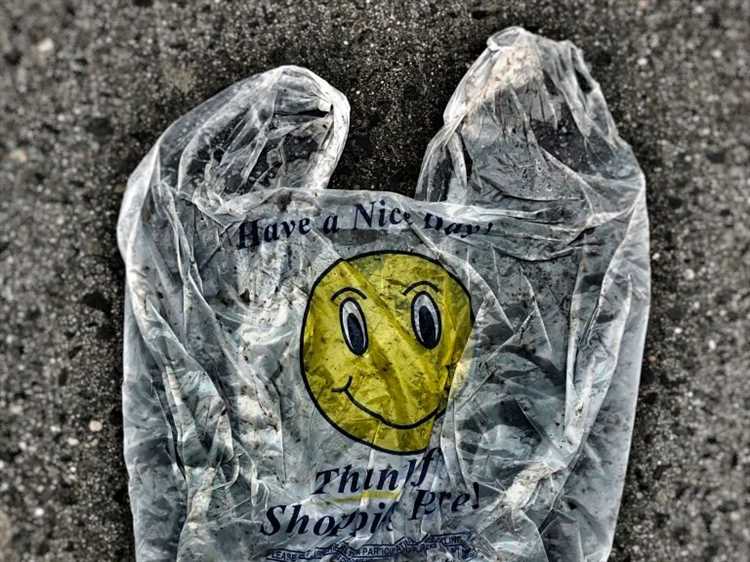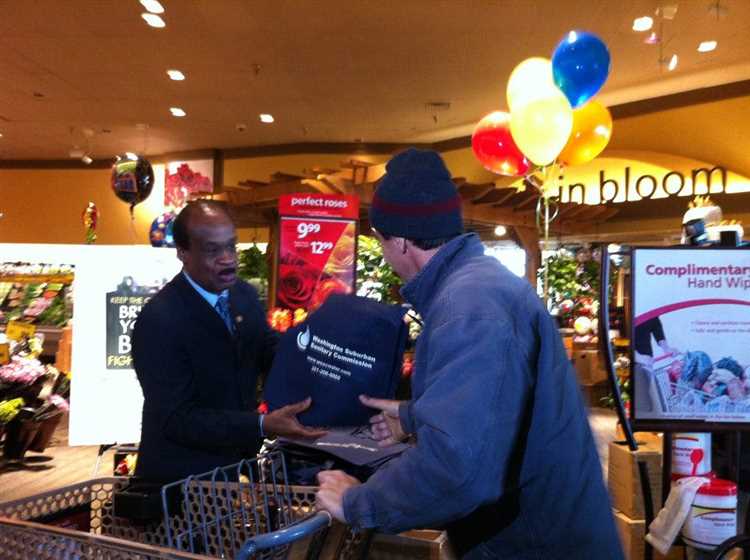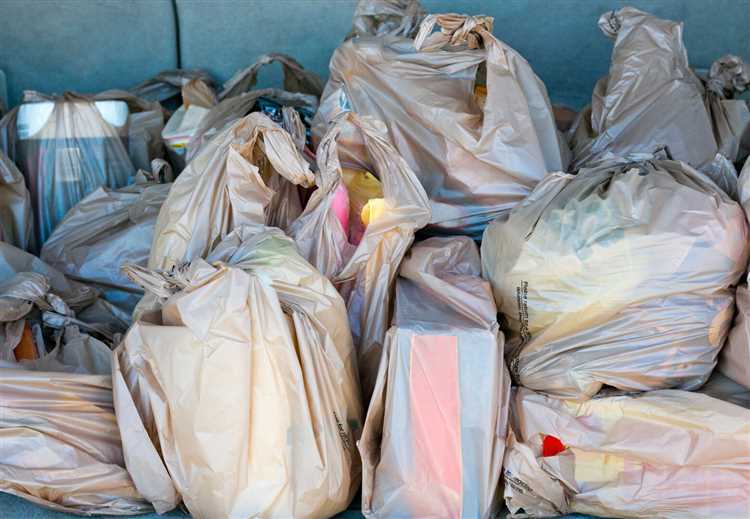
Montgomery County, Maryland implemented a bag tax in an effort to reduce the use of single-use plastic bags and promote environmentally friendly habits among residents. This initiative, which began on January 1st, 2012, requires retailers to charge customers a fee of 5 cents for each paper or plastic bag used at checkout.
The bag tax encourages residents to bring their own reusable bags when shopping, reducing the amount of plastic waste generated by the county. By shifting towards reusable bags, Montgomery County aims to protect local wildlife, preserve natural resources, and improve the overall cleanliness of the community.
The idea behind the bag tax is to raise awareness about the impact of single-use plastics and encourage individuals to make more sustainable choices. By implementing a small fee for each bag used, the county hopes to incentivize shoppers to bring their own bags and reduce their reliance on disposable alternatives. The money collected from the bag tax is used to fund environmental initiatives and programs aimed at further reducing waste in the county.
- Explanation of the Bag Tax
- Benefits of the Bag Tax
- Exemptions and Exceptions
- History of the Bag Tax
- Benefits of the Bag Tax
- Controversies and Challenges
- Environmental Impact of the Bag Tax
- Economic Implications of the Bag Tax
- Increased Revenue for the Local Government
- Decreased Plastic Bag Usage
- Public Response to the Bag Tax
- Supporters of the Bag Tax
- Critics of the Bag Tax
- Question-answer:
- Why was the bag tax implemented in Montgomery County, Maryland?
- How much is the bag tax in Montgomery County, Maryland?
- What happens to the revenue from the bag tax?
- Are there any exemptions to the bag tax?
- Has the bag tax been successful in reducing plastic bag usage?
- What is the Bag Tax in Montgomery County Maryland?
Explanation of the Bag Tax
The Bag Tax in Montgomery County, Maryland, is a measure aimed at reducing the use of single-use plastic bags and encouraging residents to switch to more environmentally friendly alternatives. The tax was implemented in an effort to reduce pollution, protect wildlife, and promote sustainability in the county.
Under the bag tax, customers are charged a fee for each disposable bag they use when purchasing goods. This fee applies to both plastic and paper bags and is collected by the retailer. The purpose of the fee is to encourage individuals to bring reusable bags with them when shopping and reduce reliance on single-use bags.
The bag tax has been successful in reducing the consumption of plastic bags in Montgomery County. Since its implementation, there has been a significant decrease in the number of plastic bags being used, resulting in less plastic waste and pollution in the county. This shift towards reusable bags has also helped to protect local wildlife, as animals are less likely to be harmed by discarded plastic bags.
Benefits of the Bag Tax

- Environmental Impact: The bag tax has helped to reduce plastic waste in the county, leading to a cleaner environment and less pollution. This has a positive impact on local ecosystems and wildlife.
- Behavioral Change: The tax has encouraged individuals to adopt more sustainable habits by bringing their own reusable bags when shopping. This change in behavior promotes long-term sustainability.
- Financial Support: The revenue generated from the bag tax is allocated towards environmental initiatives in the county, such as recycling programs and education campaigns. This supports the county’s efforts to create a more sustainable community.
Exemptions and Exceptions
There are certain exemptions and exceptions to the bag tax in Montgomery County. Retailers are not required to charge the fee for bags used to package perishable items, prescription medications, or dry cleaning. Additionally, individuals with specific financial situations or medical conditions can apply for an exemption from the bag tax, provided they meet the eligibility criteria.
Overall, the bag tax in Montgomery County, Maryland, has been an effective measure in reducing the use of single-use plastic bags and promoting sustainability. By encouraging individuals to switch to reusable bags and reducing plastic waste, the county is taking important steps towards creating a cleaner and more environmentally friendly community.
History of the Bag Tax
The Bag Tax in Montgomery County, Maryland was implemented as a part of an effort to reduce pollution and encourage the use of reusable bags. It was introduced on January 1, 2012, becoming the first county in the state to implement such a tax.
The idea behind the bag tax was to discourage the use of single-use plastic bags, which are a major source of litter and can take hundreds of years to decompose. By imposing a tax on these bags, the county hoped to incentivize customers to bring their own reusable bags when shopping.
The bag tax initially imposed a fee of 5 cents per bag, but it was later increased to 10 cents in 2014 due to the success of the program. The revenue generated from the bag tax is used to support environmental initiatives and education programs in the county.
Since its implementation, the bag tax in Montgomery County has been effective in reducing the use of disposable bags. According to a study conducted by the county, there has been a significant decrease in the number of single-use bags distributed by retailers, indicating a shift in consumer behavior.
Benefits of the Bag Tax
The bag tax has had several positive impacts on the environment and the community:
- Reduction in litter: The bag tax has helped reduce litter in the county, particularly in waterways and natural areas.
- Promotion of reusable bags: The tax has encouraged the use of reusable bags, which are more environmentally friendly and can be used many times.
- Conservation of resources: By reducing the demand for single-use bags, the tax has contributed to the conservation of resources, such as oil and water, which are used in the production of plastic bags.
Controversies and Challenges
While the bag tax in Montgomery County has been successful in achieving its goals, it has not been without controversies and challenges:
- Resistance from retailers: Some retailers initially opposed the bag tax, citing concerns about customers’ reactions and potential negative impact on sales.
- Enforcement issues: Ensuring compliance with the bag tax has been a challenge for the county, as it relies on retailers to collect and report the fees.
- Effect on low-income communities: Critics argue that the bag tax disproportionately affects low-income communities, as they may face financial barriers to purchasing reusable bags.
Overall, the bag tax in Montgomery County has been a step towards promoting sustainable practices and reducing pollution. It serves as an example for other regions looking to implement similar measures to tackle plastic waste.
Environmental Impact of the Bag Tax
The bag tax implemented in Montgomery County, Maryland, has had a significant environmental impact since its introduction. By discouraging the use of single-use plastic bags and promoting reusable alternatives, the tax has helped reduce the amount of plastic waste generated in the county. This section will explore the various environmental benefits of the bag tax.
| Environmental Benefit | Description |
|---|---|
| Reduction in Plastic Pollution | The bag tax has effectively decreased the amount of plastic bags ending up in water bodies and natural habitats. This has helped protect aquatic ecosystems and wildlife from the harmful effects of plastic pollution. |
| Decreased Energy Consumption | By encouraging the use of reusable bags, the bag tax has reduced the production and transportation of plastic bags. This has resulted in a decrease in the energy required to manufacture and distribute single-use bags, leading to reduced greenhouse gas emissions. |
| Saving Natural Resources | Plastic bags are made from non-renewable resources such as petroleum. By promoting reusable alternatives, the bag tax has helped conserve these limited resources, contributing to a more sustainable use of natural resources. |
| Positive Impact on Marine Life | Reducing the amount of plastic waste in water bodies has a direct positive impact on marine life. Many marine species mistake plastic bags for food, leading to ingestion and entanglement. The bag tax has helped minimize these harmful interactions. |
| Support for Recycling Efforts | The bag tax revenue has been utilized to support recycling programs and initiatives in the county. This has helped improve waste management practices and promote a circular economy. |
In conclusion, the bag tax in Montgomery County, Maryland, has had a positive environmental impact by reducing plastic pollution, decreasing energy consumption, saving natural resources, benefiting marine life, and supporting recycling efforts. By continuing to encourage the use of reusable bags, the county can further improve its environmental stewardship and contribute to a healthier and more sustainable future.
Economic Implications of the Bag Tax
The implementation of the bag tax in Montgomery County, Maryland has had various economic implications for both businesses and consumers. Understanding these implications is essential in evaluating the effectiveness and impact of the bag tax policy.
Increased Revenue for the Local Government
One of the primary economic implications of the bag tax is the increased revenue generated for the local government. The revenue collected from the bag tax can be used to fund various environmental initiatives and programs, such as recycling or waste management infrastructure improvements. This revenue stream can help the local government address environmental concerns while reducing the burden on taxpayers.
Decreased Plastic Bag Usage
The bag tax has also led to a significant decrease in plastic bag usage within the county. By imposing a financial cost on plastic bags, consumers are incentivized to switch to reusable bags or opt for alternatives like paper bags. As a result, the demand for plastic bags decreases, leading to a reduction in plastic waste and environmental pollution. This decrease in plastic bag usage aligns with the county’s sustainable development goals and contributes to a cleaner and greener community.
In addition to the environmental benefits, the decreased plastic bag usage can have economic implications. Businesses within the county have seen a decline in their expenditure on purchasing plastic bags, which can translate into cost savings. Furthermore, businesses can also take advantage of the increased demand for reusable bags by offering them as a promotional item or charging a fee for them. This can potentially create new revenue streams for businesses while supporting the sustainability goals of the community.
- Costs for Businesses
While there are potential benefits associated with the bag tax, it also imposes additional costs on businesses. Businesses must invest in proper signage and staff training to ensure compliance with the bag tax policy. Additionally, businesses that continue to provide plastic bags must implement systems to collect and report bag tax revenue to the local government. These costs can pose a financial burden, especially for small businesses that may already be facing economic challenges.
Overall, the bag tax in Montgomery County, Maryland has significant economic implications for both businesses and consumers. While it generates increased revenue for the local government and reduces plastic bag usage, it also imposes costs on businesses. Understanding these implications is crucial in evaluating the overall effectiveness and impact of the bag tax policy.
Public Response to the Bag Tax
Ever since the implementation of the bag tax in Montgomery County, Maryland, there has been a mixed reaction from the public. Proponents of the tax argue that it is an effective way to reduce the use of single-use plastic bags and encourage sustainable practices. However, there are also critics who believe that the bag tax is unnecessary and burdensome.
Supporters of the Bag Tax

Supporters of the bag tax applaud the county’s effort to reduce plastic waste and protect the environment. They argue that the tax has been successful in changing consumer behavior by incentivizing the use of reusable bags. Many residents have started bringing their own bags to stores, leading to a significant decrease in plastic bag usage.
Additionally, supporters point out that the revenue generated from the bag tax is used to support local environmental initiatives. This includes funding for recycling programs, clean-up campaigns, and educational efforts to raise awareness about plastic pollution. They believe that the benefits of the bag tax extend beyond reducing plastic waste and have a positive impact on the community as a whole.
Critics of the Bag Tax

On the other hand, critics argue that the bag tax is an unnecessary burden on consumers. They claim that the tax unfairly targets low-income residents who may rely on plastic bags for convenience or cannot afford reusable alternatives. There are concerns that the bag tax disproportionately affects vulnerable populations and widens the socioeconomic gap.
Critics also question the effectiveness of the bag tax in achieving its intended goals. They argue that the decline in plastic bag usage could be attributed to other factors, such as increased awareness of environmental issues, rather than the tax itself. Some critics suggest that alternative measures, such as improved recycling infrastructure or voluntary plastic bag reduction programs, would be more effective in reducing plastic waste.
In conclusion, the bag tax in Montgomery County has sparked a wide range of reactions from the public. While supporters praise its positive impact on the environment and community, critics voice concerns about its fairness and effectiveness. The debate surrounding the bag tax continues, highlighting the complexity of balancing environmental concerns with economic and social factors.
Question-answer:
Why was the bag tax implemented in Montgomery County, Maryland?
The bag tax was implemented in Montgomery County, Maryland to reduce plastic pollution and promote the use of reusable bags. It is an environmental measure aimed at reducing the consumption of disposable bags and encouraging people to adopt more sustainable alternatives.
How much is the bag tax in Montgomery County, Maryland?
The bag tax in Montgomery County, Maryland is 5 cents per bag. This tax is applicable to all plastic and paper bags provided by retailers at the point of sale, including grocery stores, convenience stores, and other retail establishments.
What happens to the revenue from the bag tax?
The revenue generated from the bag tax is used to fund environmental programs and initiatives in Montgomery County, Maryland. These programs include educational campaigns, litter cleanup efforts, and the promotion of sustainable practices. The goal is to support environmental conservation and create a cleaner and healthier community.
Are there any exemptions to the bag tax?
Yes, there are some exemptions to the bag tax in Montgomery County, Maryland. Certain types of bags are not subject to the tax, such as bags used for prescription medication, dry cleaning, and newspapers. Additionally, customers who receive government assistance programs are exempted from paying the bag tax.
Has the bag tax been successful in reducing plastic bag usage?
Yes, the bag tax has been successful in reducing plastic bag usage in Montgomery County, Maryland. Since its implementation, there has been a significant decrease in the consumption of disposable bags, leading to a reduction in plastic pollution and environmental impact. Many residents have embraced reusable bags as a more sustainable alternative to single-use plastic and paper bags.
What is the Bag Tax in Montgomery County Maryland?
The Bag Tax in Montgomery County Maryland is a fee imposed on the use of disposable bags at retail establishments. Customers are charged a small fee for each bag they use, with the aim of reducing plastic waste and promoting the use of reusable bags.